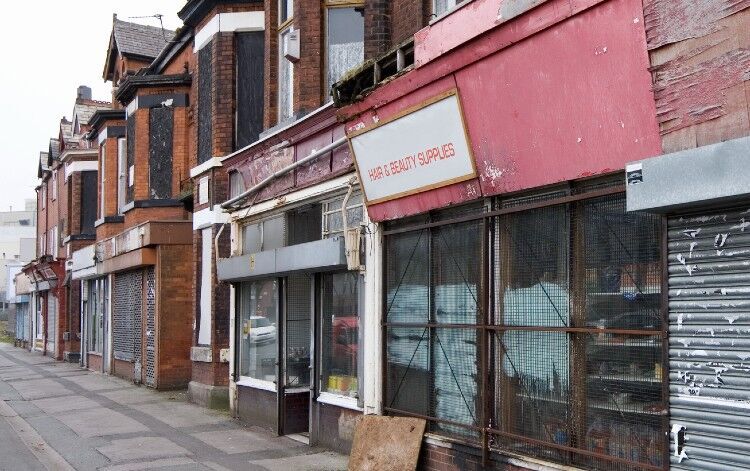Pharmacy closures nearly five times higher in more deprived areas

EXCLUSIVE The most deprived areas in England have lost nearly five times as many community pharmacy premises as the least deprived areas in the last five years, new analysis from The Pharmacist has found.
The 10% most deprived areas saw a net loss of around 250 local pharmacies between March 2019 and April 2024, while the 10% least deprived areas lost around 50.
And nationwide, over 1,200 bricks and mortar community pharmacies have been lost - nine in ten of which are estimated to have been providing NHS services.
Ahead of the publication of Labour’s full manifesto, the party has responded to The Pharmacist’s findings, calling the nationwide closures ‘shocking’, pledging to ‘reform the NHS, so everyone has access to healthcare when they need it’, and to ‘further expand the role of community pharmacy’.
Meanwhile, the Liberal Democrats have pledged to 'work towards a fairer and more sustainable long-term funding model for pharmacies' and the Conservatives have set out increased spending plans for Pharmacy First.
Pharmacy closures disproportionately affecting more deprived areas
When we compared the number of pharmacy premises registered with the General Pharmaceutical Council (GPhC) between 2019 and 2024, we found a net loss of more than 1,200 community pharmacies across England.
Related Article: Cross-sector working the ‘way forward’ for pharmacy
And comparing the locations of pharmacy closures to 2019 deciles of multiple deprivation supported claims that pharmacy closures are disproportionately affecting more deprived areas.
Analysis of GPhC data found that the 10% most deprived areas in England had four times as many closures as in the least 10% deprived areas, based on 2019 indices of multiple deprivation.
And taking into account new pharmacy openings suggested that the 10% most deprived areas lost nearly five times as many community pharmacies between March 2019 and April 2024 as the 10% least deprived areas.
The 10% least deprived areas had lost an estimated 52 pharmacies between March 2019 and April 2024, while the 10% most deprived areas had lost 245.
Malcolm Harrison, chief executive of the Company Chemists’ Association, noted that ‘pharmacy closures are disproportionately affecting the communities who need primary care access the most’.
‘Pharmacies cannot be expected to operate at a loss, and effectively subsidise the NHS, any longer. Without significant additional funding, fewer pharmacies will result in patients finding it even harder to access the medicines and clinical NHS care that they need,’ he said.
And Janet Morrison, chief executive of Community Pharmacy England, said that permanently closing was 'an absolute last resort for pharmacy owners, with any closure having a detrimental impact on patients as well as increasing the pressure on other pharmacies.'
Related Article: Tell us about your experiences and stand to win £1,000
'The accelerating reduction in pharmacies in recent years is testament to the crippling effect that the relentless financial and operational pressures on community pharmacy are having,' she added.
Is the 'positive pharmacy pharmacy care law' in jeopardy?
Jay Badenhorst, director of pharmacy at the Pharmacists’ Defence Association (PDA), warned that ‘a reduction in traditional ‘bricks and mortar’ pharmacies leads to reduced access to healthcare, especially in rural or deprived areas.’
‘We are all familiar with the inverse care law suggesting that those who need healthcare the most often receive it the least.
‘However, in the context of pharmacy, it was found in 2014 to be the opposite’, he added.
A 2014 British Medical Journal (BMJ) article found that the majority of the population had access to a community pharmacy within 20 min walk, with greater access in areas of highest deprivation – a statistic which became known as the ‘positive pharmacy care law’.
But the PDA expressed concerns that, ‘due to the emerging evidence, the ‘positive pharmacy care law’ may no longer be relevant and that many communities may now be under-served by pharmaceutical care’.
Related Article: Boots pharmacies to pilot ‘sponge on a string’ cancer test
In particular, Mr Badenhorst noted the ‘reduced availability of services like vaccinations, emergency contraception and minor ailment advice, with patients in deprived areas having to seek alternatives or go without these services.’
‘Further, with fewer open pharmacies, patients face longer queues and waiting times, exasperated by the chronic shortages of essential medicines. This can delay essential medicines being supplied to patients, further affecting health inequalities with patients in deprived neighbourhoods suffering the most,’ Mr Badenhorst added.
How are pharmacy closures affecting your area? Find out in our interactive map.

Have your say
Please add your comment in the box below. You can include links, but HTML is not permitted. Please note that comments are not moderated before publication and the views expressed are those of the user and do not reflect the views of The Pharmacist. Remember that submission of comments is governed by our Terms and Conditions. You can also read our full guidelines on article comments here – but please be aware that you are legally liable for any libellous or offensive comments that you make. If you have a complaint about a comment or are concerned that a comment breaches our terms and conditions, please use the ‘Report this comment’ function to alert our web team.